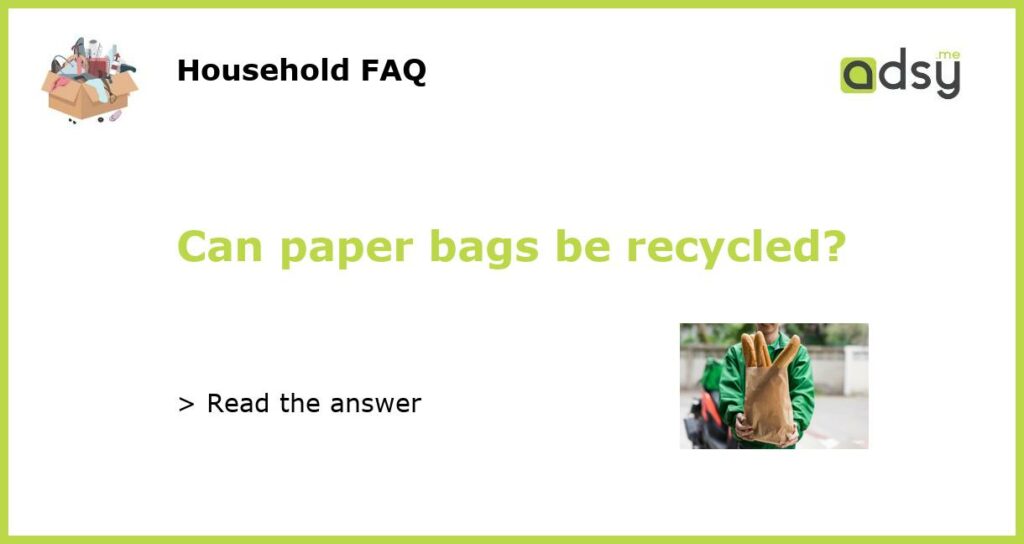Yes, paper bags can be recycled
Paper bags are commonly used for carrying groceries, as gift bags, and for various other purposes. Many people wonder whether paper bags can be recycled, and the answer is yes. Paper bags are made from a renewable resource – trees – and they can be recycled into new paper products. Recycling paper bags helps to conserve natural resources, reduce waste, and minimize the carbon footprint associated with the production of new paper materials. However, it’s important to note that not all paper bags are the same, and some may be more easily recyclable than others.
The recycling process for paper bags
The recycling process for paper bags starts with collection. When paper bags are collected for recycling, they are typically sorted and separated from other recyclable materials. This allows for more efficient processing and ensures that the paper bags can be recycled properly. Once the paper bags are sorted, they are usually pulped. This involves shredding the bags and then soaking them in water to break them down into a pulp. Any non-paper materials, such as handles or glossy coatings, are removed during this pulping process. The pulp is then cleaned, de-inked, and processed to remove any contaminants. Finally, the clean pulp is then used to make new paper products, such as recycled paper bags or other paper materials.
Recycling paper bags vs using new ones
When it comes to choosing between recycling paper bags and using new ones, there are a few factors to consider. First and foremost, recycling paper bags helps to conserve natural resources. By recycling paper bags, we can reduce the demand for new paper materials, which in turn reduces deforestation and habitat destruction. Additionally, recycling paper bags reduces waste. Rather than ending up in landfills, where they can take years to decompose, recycled paper bags can be turned into new products. Recycling paper bags also helps to minimize the carbon footprint associated with their production. Producing recycled paper bags requires less energy and water than producing new ones, which helps to reduce greenhouse gas emissions and conserve water resources.
Challenges and considerations in recycling paper bags
While paper bags can be recycled, there are some challenges and considerations to keep in mind. One challenge is the presence of non-paper materials, such as handles or glossy coatings, on some paper bags. These non-paper materials can make it more difficult to recycle the bags and may require additional processing steps to remove them. It’s important to check with local recycling facilities to determine if they accept paper bags and if there are any specific guidelines or requirements for recycling them. Another consideration is the recycling infrastructure in your area. Not all communities have access to recycling programs or facilities that accept paper bags, so it’s important to do some research and find out what options are available to you. If recycling paper bags is not possible in your area, consider reusing them or using them as compostable material instead of throwing them away.
Yes, paper bags can be recycled. Recycling paper bags helps to conserve natural resources, reduce waste, and minimize the carbon footprint associated with the production of new paper materials. The recycling process for paper bags involves collection, pulping, cleaning, and processing the pulp into new paper products. When considering whether to recycle paper bags or use new ones, it’s important to consider the environmental benefits of recycling, such as resource conservation, waste reduction, and carbon footprint reduction. However, there may be challenges and considerations in recycling paper bags, such as the presence of non-paper materials and the availability of recycling infrastructure in your area. Overall, recycling paper bags is a sustainable and environmentally friendly choice that can help to minimize our impact on the planet.






